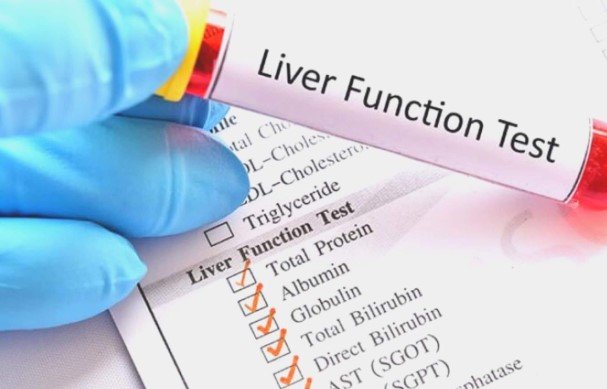8 Benefits of Taking Liver Function Tests

Liver function tests are very important for medical diagnosis because they assess how healthy one’s liver is. Such tests assess the levels of certain enzymes, proteins, and other substances that are produced by or acted upon in any way by the liver. The liver is very important because it carries out a number of functions in the body, such as detoxification, protein development, and biochemical production required for digestion.
Testing is necessary from time to time to promote the health of a person, especially those who are more susceptible to liver diseases or those experiencing some indefinable signs. Being informed about the advantages associated with liver function tests is likely to make you attempt to improve your health, which will help you to be better off in terms of risks suffered and health deterioration.
What is a Liver Function Test?
Liver function tests typically consist of a set of blood tests that help to assess liver function. These tests may include looking for levels of various enzymes, proteins, and other substances, including:
- Alanine Aminotransferase (ALT): A liver enzyme, the elevation of which is traditionally attributed to a certain degree of liver tissue damage.
- Aspartate Aminotransferase (AST): An enzyme located in the liver and some other systems; its increased level is linked to liver conditions.
- Alkaline Phosphatase (ALP): An enzyme secreted by the bile ducts; the elevation in this enzyme is suggestive of obstruction of bile drainage or a liver disorder.
- Bilirubin: A toxic pigment, bilirubin is the release of excess bilirubin into the blood, usually resulting from the destruction of red blood cells called hemolysis, and the consequences of high levels induce jaundice and liver impairment.
- Albumin: One of the many proteins generated by the liver; a lack of these proteins could imply a problem with the liver or other illnesses.
Altered levels of these entities may indicate liver damage, inflammation, or any other health concern that warrants inquiry or intervention. Liver function tests may also be directed in a broader context of evaluations directed at liver diseases, including imaging studies, biopsies, and others.
8 Benefits of Liver Function Tests
Let’s explore the benefits of taking regular liver function tests:
- Early Detection of Liver Disease
Routine liver function tests are beneficial in the early diagnosis of liver disease, thus enabling timely intervention and management. Hepatitis, fatty liver disease, or liver cirrhosis, in most cases, does not present symptoms at the early stages of infection and thus calls for routine tests. Interventions at this stage can be lifestyle modifications or medical therapies, which have pleasant outcomes, with some cases even reversing the liver damage.
- Monitoring Existing Conditions
When you have an existing condition, such as chronic hepatitis and cirrhosis, it becomes crucial to carry out repeated liver function tests regularly for effective liver maintenance. These tests are carried out so that your doctor knows how the treatment is working and whether it needs to be changed. Regular review is helpful not only for optimized treatment but also for the early detection of possible treatment complications so that they can be managed effectively.
- Assessing Risk Factors
Obese and diabetic patients, and especially those who drink alcohol, should pay attention to doing periodic liver function tests. They can also play a preventive role when complications are already present. This will help in the early detection of liver problems, and the patients may start working on liver preservation with the help of their doctors by making lifestyle changes or taking medicines.
- Evaluating Symptoms
If you start to exhibit signs of illness, such as jaundice (yellowish discoloration of the skin and eyes), weakness, pain in the abdomen, or swelling, then having a liver function test done may confirm any liver malfunction. This is because diagnosing the specific cause of illness in good time can be very healing. Moreover, there is a need to appreciate how symptoms relate to the liver so that people who have issues with the organ do not wait for a long time before seeking help with the condition to avoid health complications.
- Guiding Medication Management
Some medications can influence liver function, while chronic conditions may necessitate the administration of medications that could pose risks to the liver. Consequently, such medications have regular follow up where the liver’s response to the drugs is checked. This allows assessment of the danger posed by the drugs to the liver and modification where needed. Evaluation of results from liver function tests enables the physician to determine whether to alter the dosage of a particular medication or employ a safer but equally effective alternative, thus preventing any danger in the course of treatment.
- Supporting Lifestyle Changes
There are instances where liver function tests can enhance an individual’s healthy behavior practice. For example, awareness of the state of one’s liver encourages them to undertake a liver-protective diet, exercise, and cut back on drinks. In such cases, patients with elevated liver enzymes may decide to take healthier options, skip high-fat content foods, and add more food rich in vitamins and minerals, resulting in an improved condition.
- Correlation with Hormonal Health
It is worth noting that abnormality in liver functions may also affect normal hormonal functions in the body. For instance, abnormal liver functions may cause alteration in the amounts of certain hormones that would have otherwise given normal results, above or below reference ranges, after performing a prolactin test. One such hormone is prolactin, which is produced in the pituitary glands and participates in physiological activities such as reproduction. Therefore, it’s suggested that one’s assessment of the state of the liver should also include the level of hormones so as to achieve maximum health status.
- Peace of Mind
Periodic liver function tests can assure individuals, particularly those prone to liver disease, of their liver status. Risks associated with liver disease may cause stress; therefore, being aware of one’s liver health status can be useful in stress alleviation and effective health management. Periodic testing has the additional benefit of allowing you to assess your liver’s functional capacity over a period of time to increase your confidence that your lifestyle practices or medical treatment is effective.
The Final Words
To conclude, submitting to a liver function test is important for everyone, especially individuals at risk for developing liver-related problems. These tests have their advantages, from the early-stage detection of liver problems to helping to control already present diseases. Therefore, there are also many reasons why liver function tests are essential within health appraisal, considering hormonal health, such as prolactin’s role in relation to liver function. Regular testing can help you maintain a healthy liver by protecting your health.






